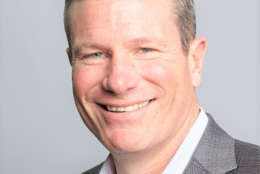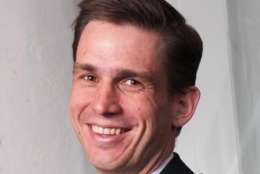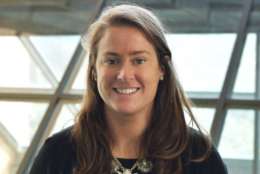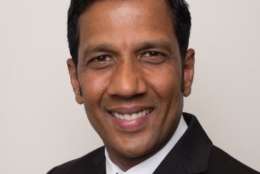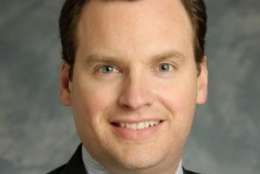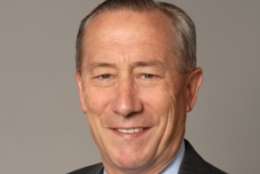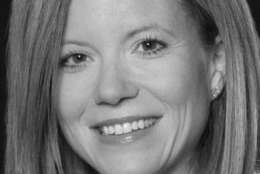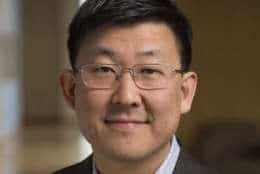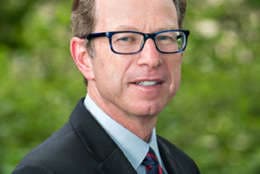entrepreneurship
-
Steve Harris, senior vice president and general manager at Dell EMC Federal, discusses the structure of relationships when a business's main customer is the federal government, and how public sector work is seen by the rest of the country.
September 26, 2018 -
Shanlon Wu, former federal prosecutor and partner; Thomas Clare, partner at Clare Locke; and Richard Levick, chairman and CEO of Levick; discuss the ways that First Amendment issues bleed into the corporate world.
September 17, 2018 -
Michael Avon, founder and CEO of ICX Media and venture investor at ABS Capital, discusses how businesses can use mergers and acquisitions to grow, even in their early stages. Avon explains that a lot of working together is required to make sure any company with acquisition potential fits with and builds on the original company's culture.
September 05, 2018 -
Suzanne Rich Folsom, attorney and regulation expert; Richard Levick, founder public affairs firm Levick; and Michael Avon, founder of ICX Media, discuss the pitfalls politicians make in developing regulations. While some rules may help big businesses, some small startups are being left out in the cold.
August 13, 2018 -
Sarah Purdum, business development associate with Anne Arundel Economic Development Corporation, discusses how talented people with great problem-solving abilities might have trouble with the marketing aspect of entrepreneurship, and how that hurdle can be overcome.
August 10, 2018 -
Mary Abbajay, expert on leadership management and career development and author of Managing Up: How to Move up, Win at Work, and Succeed with Any Type of Boss, discusses how writing a book can give entrepreneurs and leaders access to a wide range of opportunities they couldn't otherwise achieve.
August 06, 2018 -
Ajit Thyagarajan, founder of Atomic Mole, discusses how his company works to shield internet of things devices in a new and innovative way. Thyagarajan also discusses the difficulty involved in being a startup vying for the attention of larger businesses.
August 03, 2018 -
Andy Medici, money reporter for the Washington Business Journal, discusses the problems the D.C. region still has to face if it wants to regain the VC market share it had during the dotcom boom.
July 30, 2018 -
On this What’s Working in Washington EXTRA, we spoke with Bob Bigman, president of 2BSecure; Bob Flores, co-founder and partner of Cognitio Corp; and Bob Gourley, founder and CTO at Crucial Point LLC, to discuss the hurdles cybersecurity still faces in ensuring the protection of the country's most important systems.
July 23, 2018 -
Robert McNamara, managing director of Guidehouse, formerly PwC PS, discusses how public sector consultants help government agencies more efficiently serve their citizens. As part of a company that was recently divested from a larger corporation, McNamara explains how he can chase innovation with small-startup tactics.
July 20, 2018 -
Lyles Carr, senior vice president of the McCormick Group, discusses how executive recruiters operate, working with businesses to find the perfect match for an open position. Carr explains how the process may require an open mind instead of strict requirements to get the best candidates.
July 13, 2018 -
Tami Howie, chief executive officer of the Maryland Tech Council, discusses how Maryland is shaping up to be a great opportunity for tech and biotech entrepreneurs, and how the Maryland Tech Council is paving the way forward for innovation.
June 27, 2018 -
Jim Liew, co-founder of tech firm SoKat and assistant professor at Johns Hopkins Business School, discusses how the D.C. region's universities are teaching entrepreneurs to take advantage of new technologies, like blockchain, AI, and machine learning. Perhaps more important, however, is how universities are teaching entrepreneurial students to get up after they fail, and learn from their mistakes.
June 15, 2018 -
Today we're joined by Benjamin Pikus, founder of MoTrack Therapy, a company that’s using motion tracking and gamification to assist patients with physical therapy exercises. Pikus and his group recently won a competition between 100 of the region's top student-led startups.
May 23, 2018 -
Professor Erran Carmel, American University's director of the Center for Business in the Capitol, discusses the results of a wealth of data suggesting the D.C. region is one of the largest in the world for cybersecurity. Other statistics discussed help show that while the region is still struggling on some key issues, it's holding firm as a great place for entrepreneurship.
May 11, 2018

